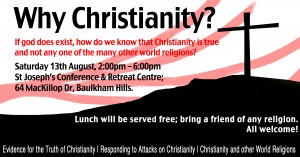
The question of how the Mysteries (sacraments) ‘work’ is necessarily and closely related to the question of the nature of God. If we want to know something about the work of the Holy Spirit, then we need first to know something about the Holy Spirit Himself. But can we ever really understand God? In the West, the Enlightenment was a time when the human mind seemed unstoppable. So many ancient questions were finally resolved, so many dark corners that seemed for centuries to be impenetrable had the light of human intellect flood into them, that it seemed that there was nothing we could not understand. Including perhaps, even God. It is a characteristic of modern Western theology that it sometimes seeks to explain what we of the East accept as inexplicable. Not just unexplained, mind you – in the sense that we just don’t know enough, but one day we might – but genuinely and forever beyond the reach of our human understanding.
But not all the great minds of the Enlightenment were so confident. Seventeenth century French philosopher Rene Descartes famously applied the ‘method of doubt’ to everything in his world and concluded that we cannot be certain that anything truly exists except ourselves (thus was born his famous phrase, cogito ergo sum, roughly translated, “I think, therefore, I am”). While most people rightly consider Descartes’ scepticism impractical, it is important for anyone who really cares about truth to be cautious about what they accept as truth.
In modern times, belief in God has been questioned for many reasons. One of these reasons is that theologians can sometimes overstep the mark and say things about God with far too much certainty. The pattern oft repeated in the West goes something like this: “God is X, Y and Z” becomes doctrine. But when thoughtful people apply careful sincere thought to the doctrine, they find serious holes in it. So they reject the doctrine of God being X, Y and Z, and the concept of a God along with it, since those who should know God best, the theologians, seem to have an indefensible concept of God. For a thoughtful Christian who has come to this point, the result is one of three things: either she will insist on holding on to a doctrine of God that she knows is indefensible; or she will lose interest in theology altogether; or she will lose her faith in the existence of God altogether.
Orthodox Christianity is more humble in its approach. Continue reading “Being Orthodox 11: Mystical”







 Cloning is an issue that raises many complex moral and ethical issues. There is any number of opinions on many of these issues, but it has so far proven difficult for the honest Christian to find certain answers on many of them. I am not sure that I have definite answers, but I will simply share some thoughts on a few interesting questions. No doubt you might disagree with some of the things I write, but feel free to comment and tell me why.
Cloning is an issue that raises many complex moral and ethical issues. There is any number of opinions on many of these issues, but it has so far proven difficult for the honest Christian to find certain answers on many of them. I am not sure that I have definite answers, but I will simply share some thoughts on a few interesting questions. No doubt you might disagree with some of the things I write, but feel free to comment and tell me why.